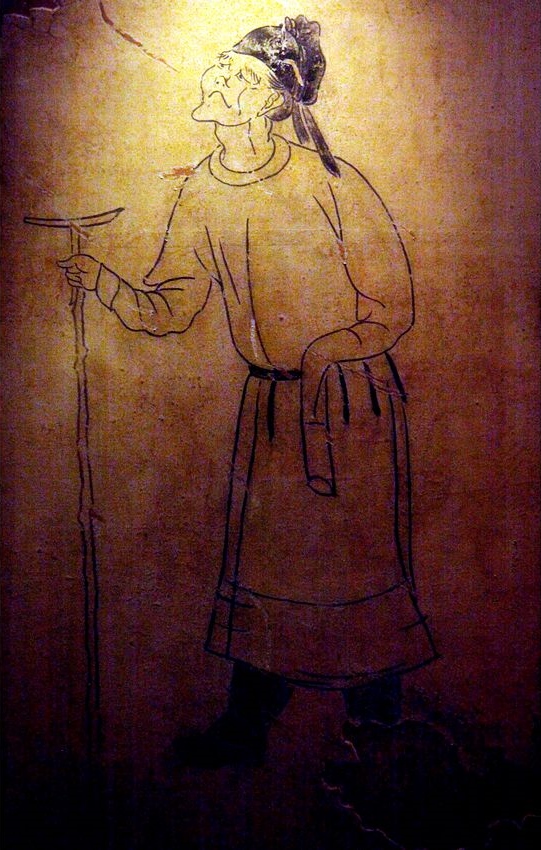Qiang Village #1
towering red clouds steep to the west,
the sun’s foot below the horizon—
at the brushwood gate, sparrows are chirping
as the wanderer returns from a thousand li’s distance—
my wife & children astonished I’ve survived
but recover from the shock & wipe their tears;
adrift in a world in upheaval, driven by chance,
it’s sheer accident I made it back alive—
the neighbors throng, seated atop the wall;
moved also to sighs, they moan & sob—
as night grows late still more bring candles:
we face each other as though in a dream
Qiang Village #2
life's dusk is pressing, & all seems empty:
even homecoming brings scant joy or appeal—
my tender son clings to my knees,
afraid that though I’ve come back I’ll leave again;
I remember how we used to seek a cool breeze
& wind through the trees at the pond’s edge—
now the powerful north wind is howling
& I stew over a hundred worries
but I know I can count on the grain harvest
& already I know the ale is in the mash-press;
now there’s enough to fill my cup to the brim
& drink down to console my dawdling decline
Qiang Village #3
the chicken flock falls to a squawking riot:
visitors arriving sets them squabbling
& I shoo them up into the trees;
only then I hear the knock on my brushwood gate—
a few reverend village elders,
they ask me about walking such a distance;
& each one comes bearing abundance:
ke teng zi beans poured in, first cloudy, then clear,
then speak bitter words about the ale’s thin taste:
no one remains to plow the fields for millet,
soldiers in their armor endlessly;
sons taken off to fight in the east—
reverend elders may I sing a song for you?
I’m shamed by your hardship & deep feeling—
the song ended I gaze toward heaven, sigh:
on all sides tears are wept without restraint
based on Du Fu: 羌村
qiāng cūn
Notes:
- The ale referred to in these poems is Huangjiu or at least an early form of it, also known as yellow wine. It's a beverage made by brewing, though it is stronger than a typical western beer or ale, as it approaches 20% alcohol. In this case it would be made of millet, though it can also be made with rice, sorghum, or wheat.
- In poem #3: ke te zing beans come from the Entada phaseoloides, which is native to East Asia & Oceania. Its vernacular English name is St Thomas Bean, but there are obvious problems in using that term in translating an 8th century Chinese poem. There are many traditional uses for these beans, but one is as an anti-inflammatory - soothing to someone who has just returned home after walking for many miles!
Image links to its source on Wiki Commons:
唐朝墓室壁畫 (Tang Dynasty tomb painting)
Public domain

No comments:
Post a Comment
Thanks for stopping by & sharing your thoughts. Please do note, however, that this blog no longer accepts anonymous comments. All comments are moderated. Thanks for your patience.